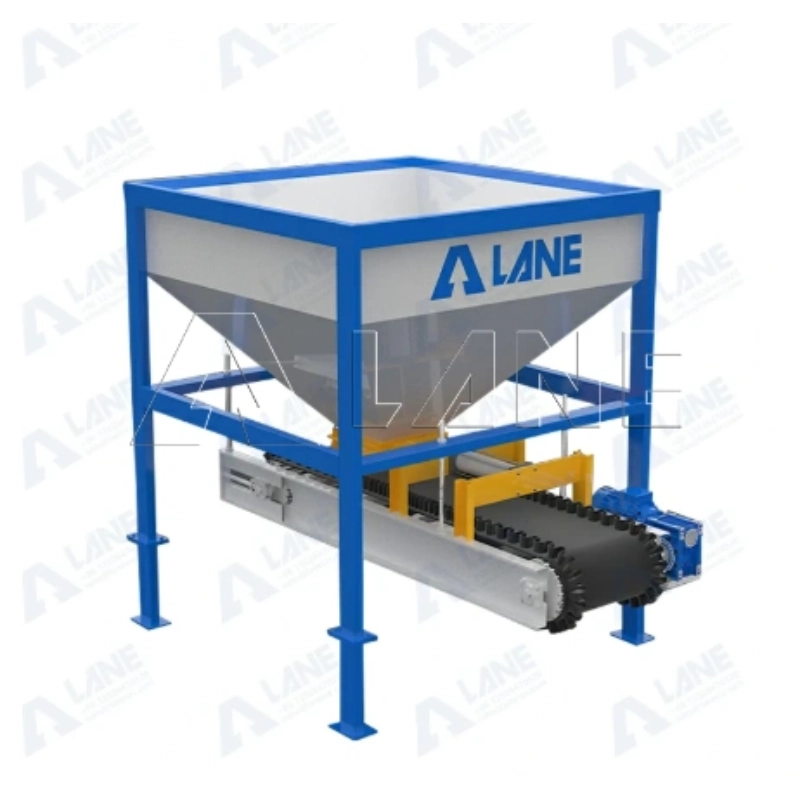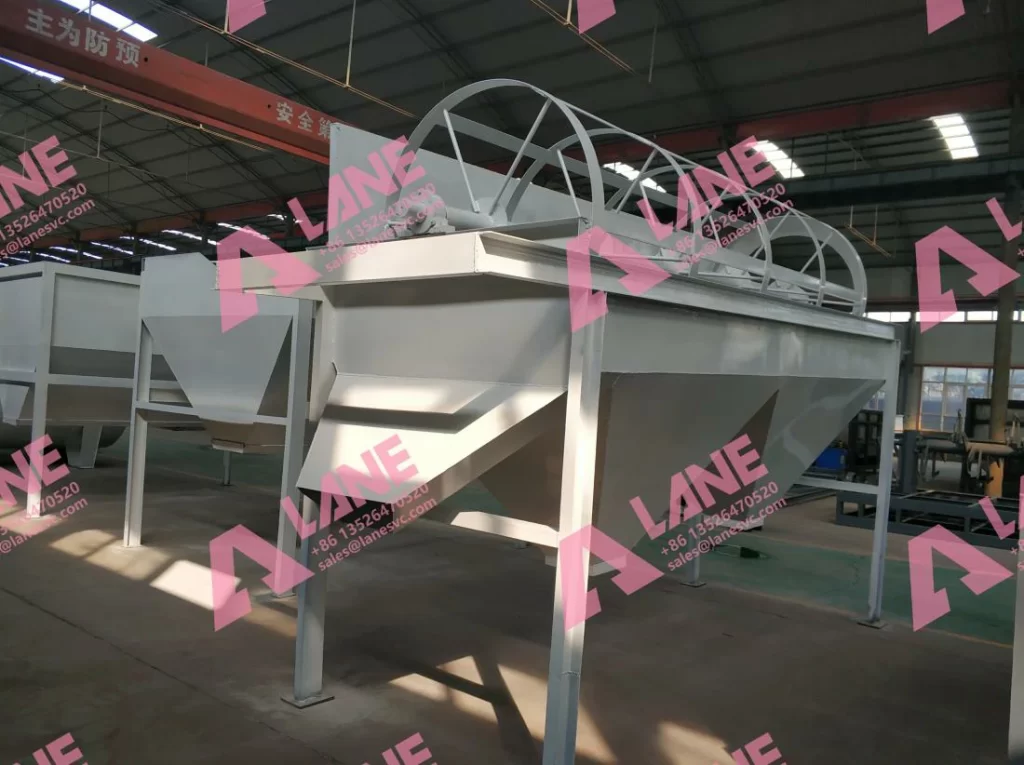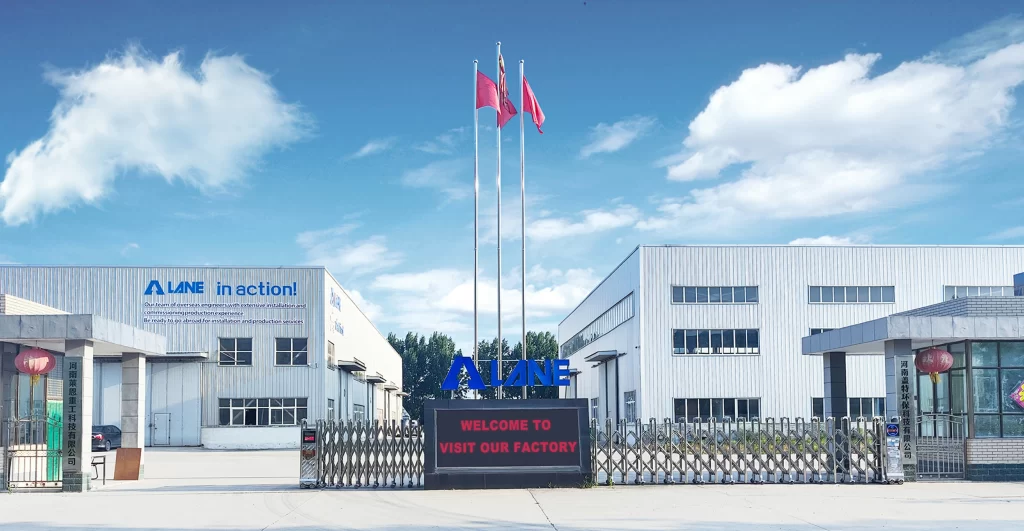Agricultural organic fertilizer granulation equipment is a game-changer for modern agriculture. As farming practices evolve, the need for high-quality, sustainable fertilizers becomes more pressing. Organic fertilizers, made from renewable resources such as animal manure, plant waste, and food scraps, provide a natural alternative to chemical fertilizers. Granulating these organic materials into easy-to-use pellets enhances nutrient release, reduces waste, and offers numerous benefits for farmers and the environment alike.
In this article, we’ll explore how agricultural organic fertilizer granulation equipment works, its role in sustainable farming, the benefits it brings to agriculture, and the specific solutions provided by LANE’s high-performance granulation machines.
1.What is Agricultural Organic Fertilizer Granulation Equipment?
Agricultural organic fertilizer granulation equipment refers to a set of machines designed to convert organic waste (such as animal manure, crop residues, and kitchen waste) into granules or spherical objects suitable for agricultural use. The granulation process not only makes fertilization easier but also enhances the efficiency of nutrient delivery to plants. These machines play a crucial role in converting organic waste into valuable resources and reducing the environmental impact of agricultural practices.
The granulation equipment usually consists of components such as crushers, mixers, granulators, dryers, coolers and packers. These machines together form a complete production line, processing organic raw materials into nutrient-rich fertilizer granules for storage, transportation and easy application to crops.
2.Common Raw Materials for Agricultural Organic Fertilizer Granulation
The versatility of agricultural organic fertilizer granulation equipment allows for the use of a wide range of raw materials, including:
Animal Manure: Common sources include cow, chicken, sheep, and pig manure, which are rich in essential nutrients for plants.
Crop Residues: Leftover plant material such as straw, corn stalks, and rice husks can be processed into organic fertilizer.
Food Waste: Organic food scraps, such as vegetable peels and fruit waste, are excellent raw materials for fertilizer production.
Wood Ash: Ashes from burning wood can be used in combination with other materials to create balanced organic fertilizers.
Green Waste: Grass clippings, leaves, and other green waste are commonly used to produce nutrient-rich organic fertilizers.
3.The Granulation Process: How Does It Work?
The process of granulating organic materials into pellets involves several steps, each crucial to producing high-quality fertilizer. Here’s a step-by-step breakdown of how agricultural organic fertilizer granulation equipment works:
Raw Material Collection and Preparation: The first step involves collecting and preparing the raw organic materials, such as animal manure, crop residues (e.g., straw, hay), food waste, or other biodegradable materials. These materials are often ground into smaller particles to ensure uniformity.
Mixing: Once the materials are prepared, they are mixed using a dynamic batching system. The system ensures that each component of the raw material is mixed in the right proportion for optimal fertilizer composition. This stage may also include the addition of other substances like trace elements or natural additives to balance the nutrient content.

Crushing: Large lumps or clumps of material are broken down into finer particles using a vertical shaft crusher. This is important to make sure the raw material can be effectively granulated.
Granulation: The core of the process, granulating machines, such as a stirring pin granulator, convert the fine organic material into uniform pellets. These machines use mechanical force to agglomerate the raw material into granular form. The granules are then shaped into the desired size and consistency.
Polishing: Once granulated, the pellets are polished to improve their surface quality and appearance. This process helps eliminate rough edges and ensures uniformity.
Drying and cooling: Excess moisture is removed from the granules using a rotary drum dryer machine. This is an essential step to ensure the fertilizer pellets retain their integrity during storage and handling. After drying, the granules are cooled down to room temperature using a cooling machine. Cooling helps stabilize the granules and prevents them from breaking apart during packaging and transport.
Screening: A rotary screen machine separates the oversized or undersized granules from the correctly sized ones. The ideal-sized pellets are sent for packaging, while the other granules are reprocessed.

Packaging: Finally, the fertilizer pellets are packaged using an automatic packing machine, ready for distribution.
4.Key Benefits of Using Agricultural Organic Fertilizer Granulation Equipment
Investing in agricultural organic fertilizer granulation equipment can offer farmers numerous benefits, both from a productivity and sustainability standpoint:
(1) Sustainable Waste Management
By converting organic waste materials such as manure and crop residues into fertilizer, agricultural organic fertilizer granulation equipment helps reduce waste disposal challenges. This process is highly sustainable as it diverts organic waste from landfills and repurposes it into a valuable resource. Farmers can recycle farm waste, reducing their reliance on chemical fertilizers and contributing to a circular agricultural economy.
(2) Efficient Nutrient Delivery to Plants
Granulated organic fertilizers are easier to apply, store, and transport. They offer controlled nutrient release, which minimizes nutrient loss and optimizes plant growth. The pellets break down slowly, providing plants with a steady supply of nutrients over time, which improves crop yields and enhances soil health.
(3) Improved Soil Fertility
Organic fertilizers are rich in essential macro and micronutrients that not only support plant growth but also improve soil structure. The slow-release nature of granulated organic fertilizers reduces the risk of leaching and nutrient imbalances. Over time, this contributes to healthier, more fertile soil that is less dependent on synthetic inputs.
(4) Cost Savings
Farmers can significantly reduce costs by producing their own organic fertilizer. Instead of purchasing expensive chemical fertilizers, they can recycle organic waste generated on their farm and convert it into high-quality fertilizer. Furthermore, agricultural organic fertilizer granulation equipment reduces labor costs by automating the production process.
(5) Enhanced Fertilizer Handling and Storage
Granulated organic fertilizers are easier to handle compared to bulk organic matter. The pellets are uniform in size, minimizing dust and ensuring a more consistent application. They also have a longer shelf life and are easier to store without the risk of spoilage.
5.LANE’s Agricultural Organic Fertilizer Granulation Equipment
LANE is a leading manufacturer of agricultural organic fertilizer granulation equipment, offering farmers and agribusinesses reliable, high-performance machines that are designed to optimize fertilizer production. Here are some of the reasons why LANE’s equipment stands out in the market:
High Efficiency: LANE’s granulation machines are engineered to maximize productivity while ensuring optimal fertilizer quality. With advanced features like automatic control systems, LANE’s equipment guarantees smooth and efficient operations.
Durability: The machines are built to last, made from high-quality materials that can withstand the wear and tear of continuous use. LANE’s equipment is designed for long-term reliability, minimizing downtime and maintenance costs.
Custom Solutions: LANE offers a wide range of equipment, allowing farmers to customize their production lines based on their specific needs. Whether you need equipment for small-scale or large-scale operations, LANE has the right solution for you.
Excellent Customer Support: From installation to maintenance, LANE offers comprehensive after-sales services, ensuring that your equipment operates at peak performance throughout its lifespan.

6.Frequently Asked Questions (FAQ)
Q 1. What types of organic materials can be used in the granulation process?
A variety of organic materials can be used, including animal manure, crop residues, food waste, and green waste. These materials are processed into high-quality organic fertilizers with the help of granulation equipment.
Q 2. How long does it take to produce organic fertilizer pellets?
The granulation process typically takes a few hours to a day, depending on the scale of operation and the type of equipment used.
Q 3. Is the granulation process energy-intensive?
While the granulation process requires energy, modern agricultural organic fertilizer granulation equipment is designed for energy efficiency. With optimized designs, these machines minimize energy consumption while maximizing output.
Q 4. Can I use my own farm’s organic waste for fertilizer production?
Yes, organic waste generated on your farm can be recycled into fertilizer using agricultural organic fertilizer granulation equipment. This is a cost-effective and environmentally friendly solution for waste management.
Q 5. Is there any maintenance required for the equipment?
Like any industrial equipment, regular maintenance is necessary to ensure smooth operation. However, LANE’s equipment is designed for durability and ease of maintenance, and after-sales support is available to assist with any service needs.
Agricultural organic fertilizer granulation equipment is a revolutionary technology that allows farmers to efficiently recycle a wide range of organic waste materials—such as animal manure, crop residues, and food scraps—into highly valuable fertilizer pellets. This innovative process plays a crucial role in enhancing nutrient efficiency, ensuring that plants receive a steady, balanced supply of nutrients over a longer period. By converting organic waste into fertilizer, the granulation process significantly reduces reliance on synthetic chemical fertilizers, fostering more sustainable farming practices.
With LANE’s innovative and durable agricultural organic fertilizer granulation equipment, farmers are equipped with cutting-edge solutions that streamline fertilizer production and minimize the environmental impact. Designed for high efficiency and reliability, LANE’s machines ensure that farmers can produce top-tier organic fertilizers at scale, supporting the long-term sustainability and profitability of their farming operations. By embracing this transformative technology, farmers can enhance crop yields, protect the environment, and contribute to a more sustainable agricultural future.
For more details, please feel free to contact us.
Henan Lane Heavy Industry Machinery Technology Co., Ltd.
Email: sales@lanesvc.com
Contact number: +86 13526470520
Whatsapp: +86 13526470520